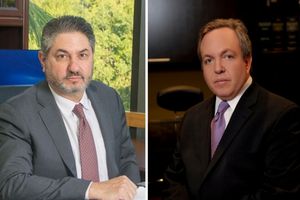 Following their 2021 appearance, SEC whistleblower attorneys Scott Silver and David Chase were invited back to the ‘Cut To The Chase’ legal podcast to discuss SEC whistleblower program updates and the relevance of the program in recent news, including the collapse of FTX.
Following their 2021 appearance, SEC whistleblower attorneys Scott Silver and David Chase were invited back to the ‘Cut To The Chase’ legal podcast to discuss SEC whistleblower program updates and the relevance of the program in recent news, including the collapse of FTX.
SEC Chairman Discusses $1BN In Whistleblower Bounties
The US Securities and Exchange Commission’s Whistleblower Program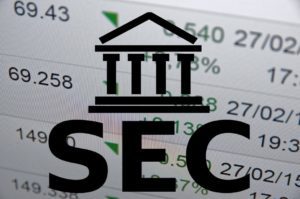 passed the $1 billion mark of awards in September of 2021. To mark the occasion, SEC Chair Gary Gensler discussed the significance of this milestone in an official SEC YouTube video. At the time, the SEC had paid out bounties of $1,074,010,519.76 to 207 individuals for their information and assistance. (The latest press releases have not indicated the number of whistleblowers who have been awarded bounties.) Continue reading
passed the $1 billion mark of awards in September of 2021. To mark the occasion, SEC Chair Gary Gensler discussed the significance of this milestone in an official SEC YouTube video. At the time, the SEC had paid out bounties of $1,074,010,519.76 to 207 individuals for their information and assistance. (The latest press releases have not indicated the number of whistleblowers who have been awarded bounties.) Continue reading
Joint Whistleblowers Collect $28 Million Bounty from SEC Enforcement Action
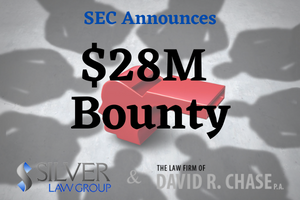 The SEC recently announced that it has awarded a bounty of more than $28 million to “joint whistleblowers” who offered information and assisted in a successful enforcement action. The order indicated that there were four individuals, who will each receive 25% of the total, or roughly $7 million each. Continue reading
The SEC recently announced that it has awarded a bounty of more than $28 million to “joint whistleblowers” who offered information and assisted in a successful enforcement action. The order indicated that there were four individuals, who will each receive 25% of the total, or roughly $7 million each. Continue reading
Three SEC Whistleblowers Share $18 Million Bounty From SEC
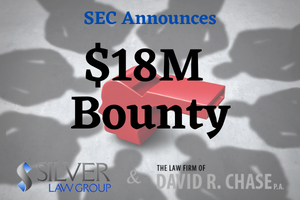 After another successful enforcement action, the SEC has awarded $18 million to three whistleblowers who each contributed vital information.
After another successful enforcement action, the SEC has awarded $18 million to three whistleblowers who each contributed vital information.
SEC whistleblower #1 alerted the SEC that the entity was engaging in fraudulent activity. They offered valuable information that led to the SEC’s investigation into a “fraudulent scheme.” Additionally, they provided the SEC staff with documentation and ongoing assistance throughout the investigation. The information gave SEC staff a substantial advantage that furthered the investigation and led to the success of the enforcement action. Continue reading
What Is A Hedge Fund?
 Traditionally, a “hedge” is a fence or other boundary that protects one’s property. When someone “hedges their bet,” they avoid committing themselves to one specific decision—by putting something else out as a possibility. And then, of course, a hedge is an asset someone holds to protect oneself against a financial loss. Remembering those classic definitions helps in attaining a better understanding of a “hedge fund.”
Traditionally, a “hedge” is a fence or other boundary that protects one’s property. When someone “hedges their bet,” they avoid committing themselves to one specific decision—by putting something else out as a possibility. And then, of course, a hedge is an asset someone holds to protect oneself against a financial loss. Remembering those classic definitions helps in attaining a better understanding of a “hedge fund.”
Because investing in a hedge fund is an investment that protects against loss—but it’s also about avoiding the potential downsides of committing to one particular investment. And ironically enough, a hedge fund can also make investors more vulnerable to unscrupulous fund managers and risky investments. Continue reading
SEC Performance Claims
 The Securities and Exchange Commission (SEC) Commission issued a new bulletin educating investors about performance claims. And this new bulletin is a good reminder to analyze performance claims on two separate but equally significant bases:
The Securities and Exchange Commission (SEC) Commission issued a new bulletin educating investors about performance claims. And this new bulletin is a good reminder to analyze performance claims on two separate but equally significant bases:
- How is the performance calculated and presented?
- How reliable is the performance claim?
When Hedge Funds Misreport Valuations Or Prices
 Mutual funds are required to use a standard methodology to calculate their performance. But there’s no such requirement for hedge funds. That’s because hedge funds frequently invest in illiquid or otherwise difficult-to-value securities. However, that doesn’t mean hedge funds have a green light to misreport their valuations or prices. They still must be accurate and truthful. Continue reading
Mutual funds are required to use a standard methodology to calculate their performance. But there’s no such requirement for hedge funds. That’s because hedge funds frequently invest in illiquid or otherwise difficult-to-value securities. However, that doesn’t mean hedge funds have a green light to misreport their valuations or prices. They still must be accurate and truthful. Continue reading
Hedge Fund Reporting Requirements
 With their varying portfolios, hedge funds are not obligated to complete some of the registration and reporting requirements that apply to other types of securities investments. But that doesn’t mean that hedge funds are exempt from any reporting. Instead, the Securities and Exchange Commission (SEC) and the Commodity Futures Trading Commission (CFTC) promulgated joint reporting requirements specifically for advisers of hedge funds and other private funds. Continue reading
With their varying portfolios, hedge funds are not obligated to complete some of the registration and reporting requirements that apply to other types of securities investments. But that doesn’t mean that hedge funds are exempt from any reporting. Instead, the Securities and Exchange Commission (SEC) and the Commodity Futures Trading Commission (CFTC) promulgated joint reporting requirements specifically for advisers of hedge funds and other private funds. Continue reading
“An Offer Too Good to Pass Up”: Unregistered Sales Agents In Boiler Rooms (Part 2)
 In May of this year, a New York City jury convicted a man known as “Mr. T” for running a boiler room operation that defrauded dozens of American and Canadian victims. Of course, the defendant was not the famed actor. Instead, it was another man, Robert Lenard Booth. But the confusion over his name is worth noting because it’s related to Booth’s boiler room scam. Continue reading
In May of this year, a New York City jury convicted a man known as “Mr. T” for running a boiler room operation that defrauded dozens of American and Canadian victims. Of course, the defendant was not the famed actor. Instead, it was another man, Robert Lenard Booth. But the confusion over his name is worth noting because it’s related to Booth’s boiler room scam. Continue reading
Whistleblower Awarded $5 Million By SEC In Latest Order
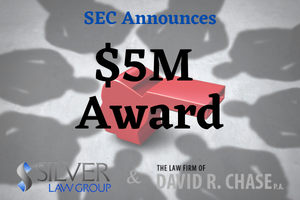 Continuing to award bounties to those who step up to report securities fraud, the SEC has recently awarded $5 million to a whistleblower for offering information and assistance. This information eventually led to a successful enforcement action where the SEC collected fines, sanctions, and other funds from the company. Continue reading
Continuing to award bounties to those who step up to report securities fraud, the SEC has recently awarded $5 million to a whistleblower for offering information and assistance. This information eventually led to a successful enforcement action where the SEC collected fines, sanctions, and other funds from the company. Continue reading
 SEC Whistleblower Lawyer Blog
SEC Whistleblower Lawyer Blog

